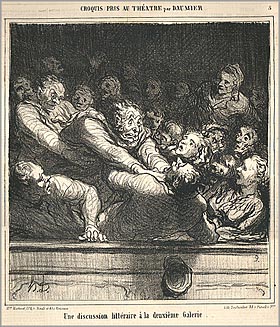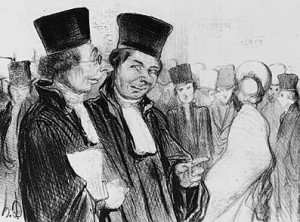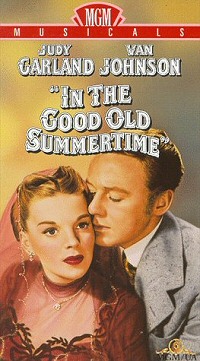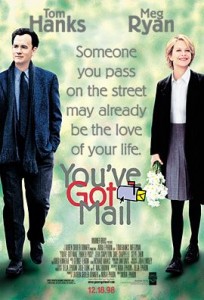 It’s not often that a person starts a full-fledged organization with a casual flick of a typing finger, but I appear to have done just that in an August 27 post in which I defended my fondness for a good chick flick.
It’s not often that a person starts a full-fledged organization with a casual flick of a typing finger, but I appear to have done just that in an August 27 post in which I defended my fondness for a good chick flick.
I found myself typing the following throwaway sentence:
“Yes, I like the movies of Nora Ephron, and if that drums me out of the league of tough-guy arts observers, so be it.”
Mighty Toy Cannon, the Sage of Culture Shock, immediately took me to task for not capitalizing the phrase, and out of that finger-wagging the League of Tough-Guy Arts Observers was born.
 Some didacts will argue that it should be “Tough-guy,” on the basis that a hyphenated word is by definition a single word and a single word can have only a single capitalization. To them I say: “Tough-guy” looks dumb. Start your own club.
Some didacts will argue that it should be “Tough-guy,” on the basis that a hyphenated word is by definition a single word and a single word can have only a single capitalization. To them I say: “Tough-guy” looks dumb. Start your own club.
Since then both Mr. and Mrs. Scatter have been scattering references to the LTGAO in our maunderings, always linking them back to that original chick-flicks post. Trouble is, you have to check high and low in the chick-flick story to discover the coinage of the term.
And there are deeper problems, such as:
- What the heck is the League of Tough-Guy Arts Observers, anyway?
- Who’s in charge?
- Can I join?
- Can I join if I’m a Tough Gal?
- Is there a secret handshake?
- What is the official League drink?
- Is there an official League logo, and do I get a membership card?
- Where do I pay my annual dues?
Excellent questions. I’ll answer them as well as I can.
- It’s whatever its members want it to be. Members may join earnestly or ironically, with a passion for flaying or a weakness for whimsy. Or even because they think it might improve their social standing.
- In charge? Does that imply responsibility?
- Of course you can join. Please do. Just leave a comment with your name and serial number and a confession of your deepest, darkest desires.
- Tough Gals are especially welcome. We mean “tough-guy” in an all-embracing way. Even mules are welcome to join, although they might find it tough to type those comments.
- I am hereby deputizing Commissar Mighty Toy Cannon to devise and photograph one. When he has completed his task, we’ll post the pictures of the process.
- You’re free to drink whatever you want. May I suggest bourbon and branch water?
- All you designers out there, get off your duffs and design us one. Thanks.
- The League of Tough-Guy Arts Observers is a democratic organization — anarchistic might be a better word — and like most everything else, membership payments are not required. Still, donations to the good cause are appreciated. Anyone wishing to help us fight the good fight is encouraged to transfer truckloads of cash to Mr. and Mrs. Scatter’s secret Swiss bank account. Contact us. We’ll give you the account number.
We’re also in the market for a good motto. Please give us your suggestions. Something better than, “I heap your pitiful effort with scorn, amateur boy!”
Come join our happy throng.
———————————————————–
Above: League of Tough-Guy Arts Observers official club illustrator Honore Daumier captures a couple of typical moments from League social gatherings.

 And I watch chick flicks. Not just any chick flick, but the well-written, well-performed ones that tend to fall into the folds of screwball or romantic comedy. Yes, I like the movies of Nora Ephron, and if that drums me out of the league of tough-guy arts observers, so be it.
And I watch chick flicks. Not just any chick flick, but the well-written, well-performed ones that tend to fall into the folds of screwball or romantic comedy. Yes, I like the movies of Nora Ephron, and if that drums me out of the league of tough-guy arts observers, so be it. The best chick flicks exude optimism, which of course makes them immediately suspect in intellectual circles. (Then again, a lot of intellectuals miss the point that Waiting for Godot is as much a vaudeville comedy as it is an existential outcry: Even Beckett enjoyed a good giggle.)
The best chick flicks exude optimism, which of course makes them immediately suspect in intellectual circles. (Then again, a lot of intellectuals miss the point that Waiting for Godot is as much a vaudeville comedy as it is an existential outcry: Even Beckett enjoyed a good giggle.) It’s a coupling of equals built on compromise and respect, and it typically involves wriggling out of a bad potential match and shedding several layers of self-delusion so you can see the simple beauty of what ought to be. That often requires eating a few slices of humble pie and taking some practical steps. In that sense, Jane Austen is the mother of all chick flicks. And Shakespeare, with his comic creations of Kate and Petruchio in The Taming of the Shrew and Beatrice and Benedick in Much Ado About Nothing, might be their grandpa.
It’s a coupling of equals built on compromise and respect, and it typically involves wriggling out of a bad potential match and shedding several layers of self-delusion so you can see the simple beauty of what ought to be. That often requires eating a few slices of humble pie and taking some practical steps. In that sense, Jane Austen is the mother of all chick flicks. And Shakespeare, with his comic creations of Kate and Petruchio in The Taming of the Shrew and Beatrice and Benedick in Much Ado About Nothing, might be their grandpa.